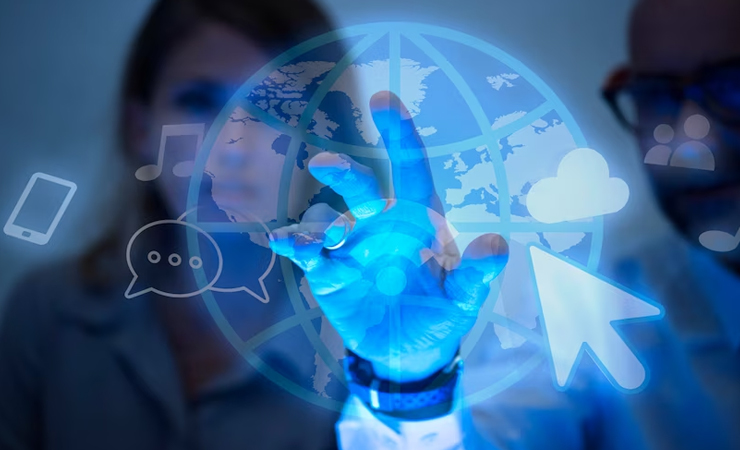Telegram
Skype
Signal

Gmail
UAE | India | USA | China | Germany | Japan | UK | Singapore | Australia | Italy | Canada
Web 3.0 Dapp development is the process of building decentralized applications that are compatible with the next generation of the internet, commonly referred to as Web 3.0. Web 3.0 is a new internet experience that is more decentralized, interoperable, and user-centric. It is powered by blockchain technology, which enables the creation of trustless and transparent applications.
The Web 3.0 infrastructure consists of various technologies, such as decentralized storage, identity protocols, and decentralized marketplaces. Web 3.0 Dapps are designed to work seamlessly with these technologies to provide users with a more secure, transparent, and decentralized internet experience.

Web 3.0 Dapp development services include a range of services that are essential for building decentralized applications. These services include:
This service involves brainstorming and planning the concept of a Dapp. The ideation process includes identifying the problem that the Dapp will solve, defining the target audience, and creating a roadmap for the development process.
Smart contracts are self-executing contracts that are coded on the blockchain. They are the backbone of most Dapps and define the rules and regulations of the Dapp. Smart contract development involves creating and deploying smart contracts on the blockchain.
Blockchain integration involves integrating the Dapp with the blockchain network. This service ensures that the Dapp is compatible with the blockchain infrastructure and can interact with other blockchain-based applications.
User interface design is an important aspect of Dapp development. It involves designing the interface of the Dapp to provide users with a seamless and intuitive user experience.
A Web3 dApp development agency is a team of developers specializing in building decentralized applications compatible with the Web 3.0 infrastructure. A Web3 dApp development agency provides a range of services, including Dapp ideation and planning, smart contract development, blockchain integration, and user interface design.
Working with a Web3 dApp development agency can provide several benefits, such as:

Web3 dApp development agencies have a team of developers who specialize in building Dapps on top of blockchain networks. They have extensive knowledge and experience in blockchain technology, which is essential for building secure and transparent Dapps.
Web3 dApp development agencies have a streamlined development process that allows them to deliver Dapps faster. This can help businesses launch their Dapps quickly and gain a competitive edge in the market.

Web3 dApp development agencies have a team of developers who work together to build Dapps. This can help businesses save on costs as they don't have to hire and manage an in-house development team.
Web 3.0 has several applications in various industries.
Web 3 DApps, or decentralized applications, offer several advantages over traditional centralized applications. One of the main advantages of Web 3 DApps is that they are decentralized, meaning they are not controlled by a single entity or organization. This makes them more resistant to censorship and less vulnerable to data breaches and hacking attacks.
Another advantage of Web 3 DApps is that they often use blockchain technology, which provides a transparent and secure way of storing and transmitting data. This can help increase user trust and reduce the need for intermediaries.
Web 3 DApps also offer greater user control and ownership over data and digital assets. With traditional centralized applications, users often have limited control over their data and must rely on the platform to protect and manage their digital assets. With Web 3 DApps, users have more control over their data and digital assets, as they are stored on a decentralized network and can be accessed and managed by the user directly.
Finally, Web 3 DApps often offer greater privacy and security. With traditional centralized applications, users are often required to provide personal information and data, which can be vulnerable to data breaches and misuse. With Web 3 DApps, users can maintain greater privacy and security, as they have control over their own data and can choose what information to share and with whom.